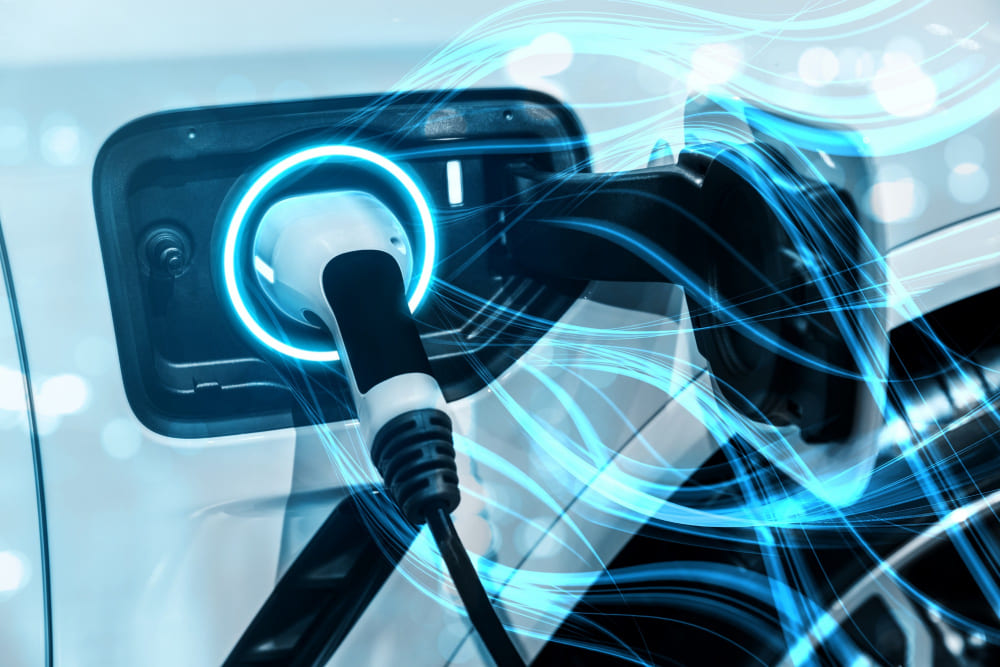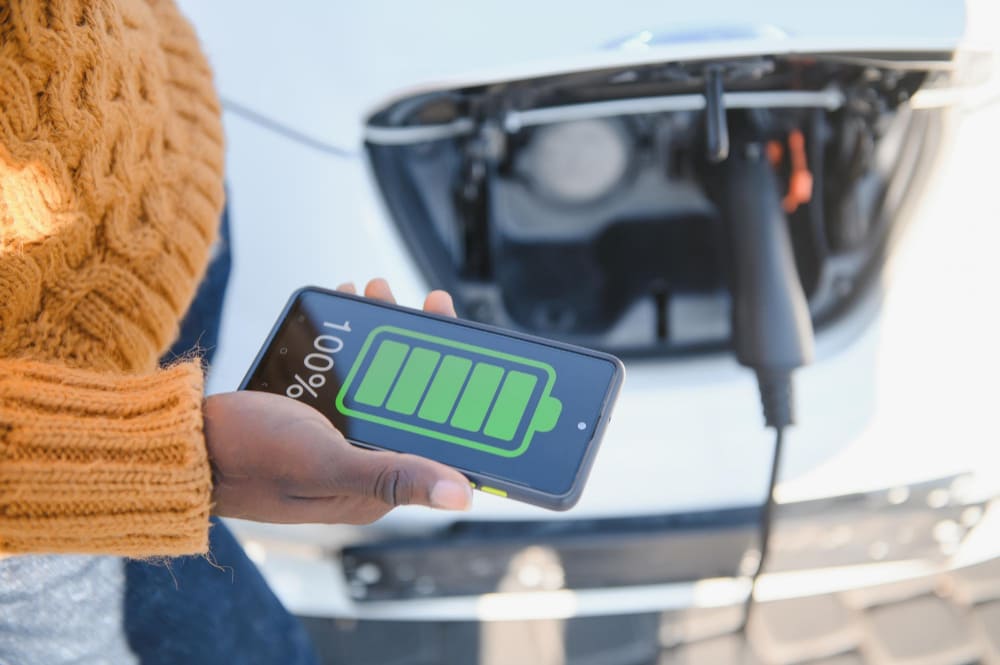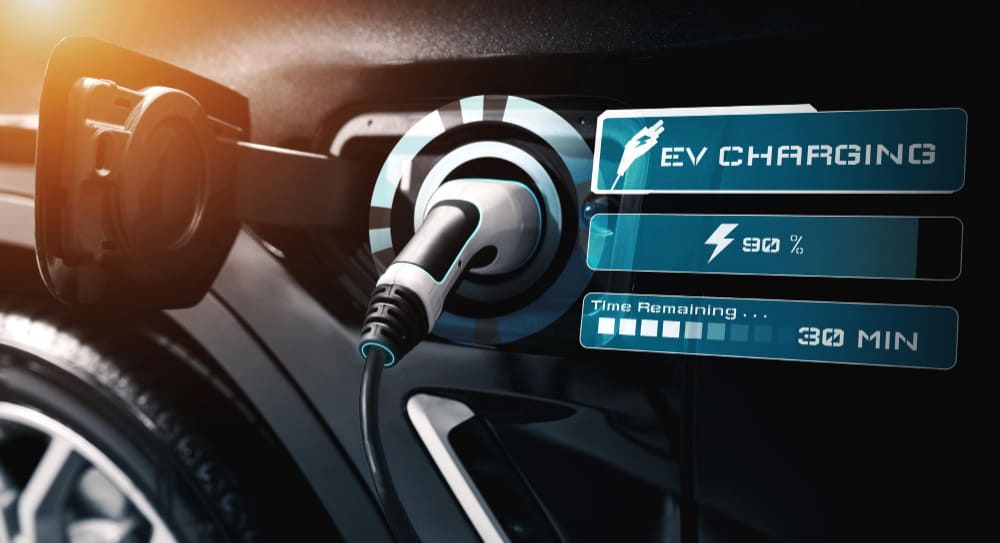With the world’s focus on reducing carbon emissions and promoting a sustainable future, electric cars are gaining popularity among environmentally-conscious individuals. But when it comes to purchasing an electric car, there’s a dilemma: should you go for a brand-new one or opt for a second-hand model?
In this post, we’ll explore the pros and cons of buying second hand vs new electric cars. Keep reading to learn more!
Pros of Buying New Electric Cars
Let’s take a closer look at both second hand vs new electric cars, starting with the new ones. From full warranty to the latest technology, here are the top pros of purchasing a new electric vehicle.
Newest Technology

As electric cars evolve and become more popular, manufacturers continually find ways to improve their performance and efficiency. This means newer models have more advanced features like longer driving ranges, faster charging times, and improved safety features like collision avoidance systems.
For instance, the 2023 Chevrolet Bolt’s Infotainment Package is more intuitive and provides seamless navigation. On the flip hand, the 2023 Ford F-150 Lightning can deliver power to everything, from your home to another EV, with plenty of power.
Full Warranty

Another great advantage of buying a new electric car is the full warranty that comes with it.
A warranty is essentially a guarantee from the manufacturer that in case anything goes wrong with the vehicle within a certain time frame, they’ll take care of the problem without extra costs. With a full warranty, you can know you’re covered in case anything goes wrong.
Warranty differs from each manufacturer. For example, the 2023 Genesis Electrified G80 has a 10-year/124,000 mi warranty, while the 2023 Audi e‑tron has an 8-year/100,000 mi warranty.
Up to $7500 in Tax Credits

One of the sole reasons why buying a new electric vehicle is preferable to a used one is the federal tax credit. This incentive offers a significant rebate of up to $7,500 for most new 100% electric vehicles, including popular models like the 2020-2021 Nissan LEAF and the upcoming Nissan ARIYA.
It’s important to note that multiple owners cannot claim this tax credit, which means it’s only available for new car buyers.
Additionally, it’s worth noting that this tax credit only applies to those who purchase an electric vehicle rather than leasing one.
Longer Mileage Range

Most newer models can travel over 200 miles on a single charge, substantially improving from earlier models. This means you won’t have to worry about running out of juice during your daily commute or on long road trips.
For example, the 2017 Hyundai Ioniq had a 124 miles driving range on a single charge, while the new 2023 Hyundai Ioniq 6 can travel up to 361 miles.
Cons of Buying New Electric Cars
Despite its promising benefits, there are several downsides to purchasing new electric cars, including:
Longer Charging Time

Since a more recent model is equipped with advanced technology and typically comes with a bigger battery pack, the likelihood of long charging times also increases.
Although Level 3 DC Fast Charging stations can significantly reduce this time, charging an electric vehicle battery at home will still require waiting several hours or overnight.
Higher Car Insurance Premiums

Premiums for auto insurance tend to be elevated for newer models, but they could be even more substantial for electric cars. This also holds for vehicle registration expenses. This way, you’ll need to prepare a higher budget.
Less ROI (lower resale value)

One of the disadvantages of purchasing a new electric car is that it tends to have a lower resale value, resulting in a reduced return on investment.
Pros of Buying Used Electric Cars
Thinking about going electric while saving your budget? The used car market offers many benefits for you. Here are the benefits of purchasing a used electric car, from lower prices to less required maintenance.
Low Cost

If you seek a cost-effective electric car, you will not have access to the federal tax credit. However, the affordable price tags of used electric cars in your vicinity are highly attractive.
In reality, pre-owned electric vehicles that are several years old can frequently be found on the internet or at an EV dealership in your area for under $20,000.
This is a particularly beneficial acquisition if you plan to solely drive your EV to work or for occasional trips to the city.
Lower Car Insurance Premiums

When considering the advantages of purchasing a used electric car, one enticing benefit is the potential for lower car insurance premiums.
As EVs gain popularity, insurance companies recognize their unique characteristics and adjust their policies accordingly.
With reduced risk factors associated with used electric cars, owners can enjoy the added financial advantage of more affordable insurance coverage.
Less Maintenance Required

Used electric vehicles (EVs) often exhibit reduced maintenance needs compared to their new counterparts.
Owners of used electric cars can enjoy the advantages of decreased maintenance costs, such as the EV batteries, and fewer trips to the electric car repair shop, contributing to enhanced convenience and potential long-term savings.
Cons of Buying Used Electric Cars
Purchasing used electric cars also comes with some drawbacks, including:
Outdated Tech

Used electric cars, especially the old releases, will not be as polished as brand-new ones. For instance, the 2011 Nissan LEAF doesn’t have an AC-induction motor type as found in the 2021 one.
No Tax Incentive

The first owner can only claim the federal tax incentive for electric vehicles. Therefore, if you purchase a used EV, you will not be eligible for this rebate, although you may be entitled to state or local incentives.
You should consult with your EV dealer to learn more about available offers.
Out of Warranty

Another drawback of buying a used electric car is that it may no longer be covered by a warranty, leaving you responsible for any repair costs that may arise.
Thus, it’s recommended to verify with the used car dealer whether the battery of a pre-owned electric vehicle is still under warranty and the duration of the coverage before making your purchase.
Low Mile Range

Unlike new electric cars, most preloved ones typically have a lower mile range, especially for older releases. For instance, the 2013 Nissan LEAF only has 75 mile-range estimate, while the 2023 Nissan LEAF has up to 212-mile range.
Frequently Asked Questions
How many used electric vehicles are sold each year in Australia?
According to recent Federal Chamber of Automotive Industries (FCAI) data, 6,900 used electric vehicles were sold in Australia in 2020. This represents a major increase compared to the 2,216 used electric vehicles sold in 2019.
What is the average price and percent reduction vs a new electric car?
The average new electric car price in Australia in 2021 is around AUD 60,000. Meanwhile, a used electric car can be purchased for significantly less, with an average price of around AUD 25,000. This represents a reduction of approximately 58%.
However, you should note that these prices and reductions can vary depending on various factors, such as the electric car models, make, age, and condition of the vehicle.
How old and how many kilometers should we look for when buying used electric cars? Is there a sweet spot?
There is no specific “sweet spot” for the age and mileage of a used electric car. However, looking for a vehicle around 3-5 years old and with less than 80,000 kilometers on it is generally recommended. Inspecting the car’s condition and battery health before making a purchase decision is important.
Conclusion
Overall, electric cars are an eco-friendly and cost-effective choice, whether you buy new or second-hand. There are pros and cons for second hand vs new electric cars, so it’s vital to consider your individual needs, preferences, and budget before making a decision.
With the rise of sustainable transportation, the electric car market is gaining popularity—hoping up second-hand electric cars could be the best option if you want to make the most of your investment. If you’re interested in investing in a quality second-hand EV, contact Kilowatt Cars now!






